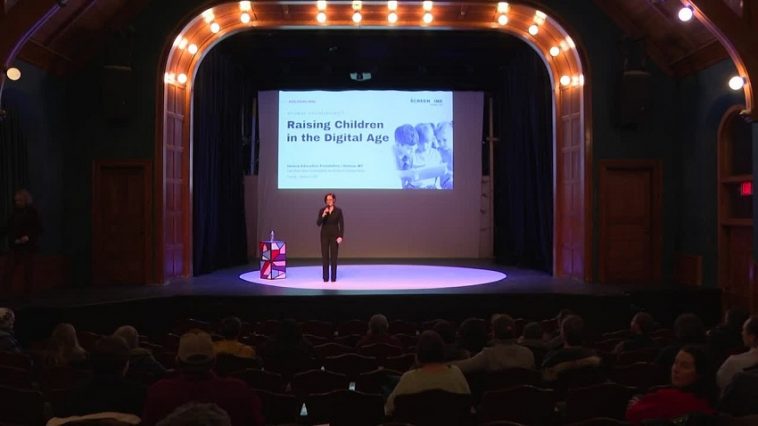Missoula, MT – The Helena Education Foundation recently hosted a community discussion featuring Washington-based author and educator Emily Cherkin, who spoke about her book and the importance of tech intentionality for children. The event, held as part of the foundation’s Face2Face initiative, aimed to foster open conversations about screen time, online safety, and the impact of technology on kids.
Cherkin, a mother and educator, shared her approach to managing technology use among children, which she calls “tech intentionality.” According to Cherkin, there are three key principles parents should keep in mind: later is better, less is more, and relationships and skills first.
“For me, tech intentionality means being mindful of how we engage with technology. Later is better, less is more, and always prioritize building relationships and life skills over screen time,” Cherkin explained to the audience.
The author spoke candidly about her own experiences with her two children, noting that the struggle to manage screen time is something many parents can relate to. Cherkin pointed to alarming statistics regarding the amount of screen time children are consuming. According to a Centers for Disease Control and Prevention (CDC) survey, American teenagers aged 12 to 17 report spending an average of more than 4.5 hours per day on screens outside of school time. Of those spending excessive time in front of screens, a significant portion also report feelings of anxiety and depression.
Cherkin’s observations resonate deeply with many parents. Beth Demmons, a local mother of five, attended the event with her youngest child, Duke. Demmons, who has spent over two decades managing her children’s screen time, believes the issue continues to grow in complexity as new technologies emerge.
“I think this is important, especially with the latest research. It moves faster than you can keep up with what’s happening in the world and how screen time is affecting our kids,” Demmons shared. “This has been something I’ve been tackling for 23 years now, and it still feels like there’s so much to navigate.”
The discussion not only provided practical advice for parents, but it also underscored the emotional and psychological impact of excessive screen time. As children become more reliant on devices for entertainment and communication, experts like Cherkin stress the importance of fostering balance through intentional practices and meaningful connections.
The Face2Face initiative continues to be a valuable platform for exploring timely topics like screen time and child development. As technology continues to advance, events like this are essential in helping families navigate the evolving digital landscape.



